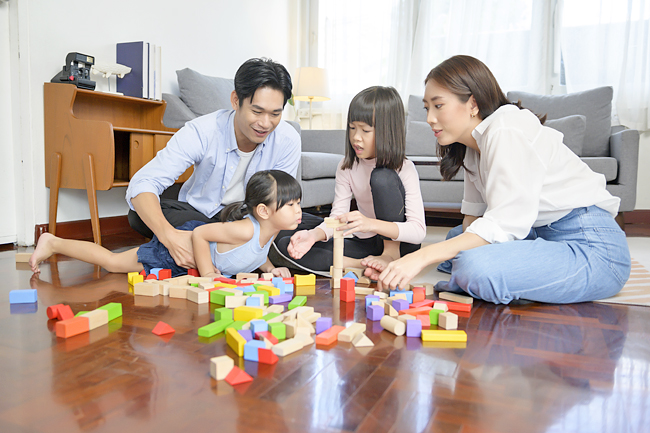Teddy Amenabar
THE WASHINGTON POST – Good morning! Start your day with me. Let’s wake up at 5am, hit the gym, do a shirtless workout, shower and scrape your tongue, and read. Don’t forget to make your bed, wash your clothes and iron those sheets. Steal some time to journal and meditate and whip together some eggs or oats. You’ve done it! You’ve conquered the day.
And it’s not even 9am.
Welcome to the morning routines of TikTok, a genre of videos that ranges from the mundane (this is me, getting ready for class) to over-the-top (doesn’t everyone stretch in front of floor-to-ceiling windows?).
For the uninitiated, it may sound odd to watch strangers brush their teeth, do laundry or make their beds, but these videos have become one of the more popular genres on TikTok.
TikTok videos tagged with #morningroutine have been watched a collective 14.6 billion times.
One of the most common morning routines is called the #5to9 – a reference to the hours between 5am and 9am when the highly motivated can put in four hours of chores and self-care before starting the work day. Take, for example, a TikTok with more than 1.5 million views from Kevin Galabay, a 22-year-old in Toronto who said he wakes up before 5am to lift weights, journal, read and get ready for work.



Some viewers find it aspirational. Others find it exhausting. “I’d be ready to go to sleep by 9am,” one viewer replied in the comments.
Galabay and other creators on TikTok said they post these videos to motivate and inspire people.
“It’s not for everyone, of course,” Galabay said. “Because if it was like that, everybody would be a business owner, everybody would be an entrepreneur and the world just wouldn’t work.” While behavioural health experts agree that creating a routine is generally a good way to build healthy habits, they note that the best routines are simple and sustainable. And most discourage scrimping on sleep to get there.
But the message of many of the morning routines on social media is that the path to success begins by rising before dawn. Even some TikTok creators are getting a little tired. Dayo Okuboyejo, a 24-year-old in Philadelphia, conceded that the routines he shared often represent “perfect, ideal days”, not a replica of his everyday life. He gave up on routines that required waking up at 5am every day. “It burnt me out eventually,” Okuboyejo said.
Now, Okuboyejo shares videos that show, among other things, him getting ready to go to the airport and his elaborate pre-bedtime ritual.
In a video that’s been watched 1.5 million times, he brushes his teeth, scrapes his tongue, gargles with peroxide, cleanses his skin and downs some vitamins before sitting on his bed, planning for the next day.
WHAT’S THE APPEAL OF WATCHING SOMEBODY ELSE’S ROUTINE?
Why do so many people watch these routines? Clinical Psychologist at the University of Pittsburgh Sophia Choukas-Bradley said watching videos of others accomplishing things is “rewarding to our brains”.
“We are especially drawn to any sort of social media content that feels upward and aspirational but still attainable,” Choukas-Bradley said. People record all types of routines on TikTok, now the world’s most popular app. Parents demonstrate how they get their kids ready in the morning. Runners record their morning miles. Young professionals blend various greens into breakfast smoothies.
Assistant Professor of psychiatry at Brown University Jacqueline Nesi said the videos can satisfy a natural curiosity to see how others live. But they can also cause young people, many of whom are already anxious about their own lives, to feel worse.
“We know from the research that some people are a lot more prone to make these negative comparisons and feel bad about themselves as a result,” Nesi said.
Nesi and others have found teens and young adults who often compare themselves to others online are more likely to report symptoms of depression from time spent on social media.
This fascination with other people’s lives isn’t new. Associate Professor at Cornell University Brooke Erin Duffy said the videos are today’s iteration of the celebrity diets and workout routines found in lifestyle magazines.
It’s an attempt to create structure for a life that can feel “unpredictable and chaotic”, Duffy said, but it can also lead to disappointment.
“This genre sets people up to failure because it condenses everything down to a boilerplate for perfection,” Duffy said.
And while there’s nothing wrong with getting up early in the morning, it becomes a problem if people don’t compensate by going to bed early, too, said Carnegie Mellon University Psychology Professor David Creswell, who has studied sleep.
“The problem with young people is that they often get competing demands with friends and phones keeping them up,” he said. “They end up paying the price with early rises and failing to get adequate nightly sleep.”
VIDEOS OF PERSONAL GROOMING AND GETTING COFFEE
Some of the routines posted on TikTok are surprisingly mundane.
Morgan Williams is a 24-year-old who has amassed more than 160,000 followers on TikTok from sharing videos of her life raising two young boys.
The videos include cleaning her car, dropping her kids at school, a coffee run, making soup and doing her hair and makeup for the day.
Williams said she’s always struggled with comparing her life to others and “social media only makes that a thousand times worse”.
But she said her fans on TikTok make her feel appreciated.
“You develop relationships with those people even though you’ve never met them,” she said.
“Being a stay-at-home mom is just so tough and lonely.”
WATCHING VIDEOS THAT MAKE YOU FEEL BAD ABOUT YOURSELF
A researcher at Harvard and the co-author of Behind Their Screens: What Teens Are Facing (and Adults are Missing) Emily Weinstein regularly talks with teenagers and finds reactions to these kinds of videos can vary widely. The big question, she said, is, “When does social media make us feel terrible and when does it make us feel good?” Weinstein said the videos of other’s people’s lives can become “comparison quicksand”.
“For me, in that one genre, some of the videos are really aspirational and inspiring and some make me feel so inadequate as a parent,” Weinstein said.
Some videos on TikTok have begun to poke fun at the endless morning routines.
“Welcome to my everyday super simple and easy, makes-you-feel-like-you’re-not-doing-enough influencer morning routine,” said one video. Matthew Campos, 26, who lives in Boston, has created videos that show him doing early morning housework that includes a perfectly-made bed.
He said he’s planning to post more “realistic” videos, where he orders pizza and sits at home, just like everyone else.
“This isn’t realistic to do every single day,” he admitted.
A TikTok creator who lives in Massachusetts Melina Blanco, 26, said she finds herself constantly watching other’s routines on TikTok, as well.
“You have to find a balance between Internet life and real life,” Blanco said. “And, when you feel like you’re comparing yourself too much, that’s when you have to turn your phone off.”







